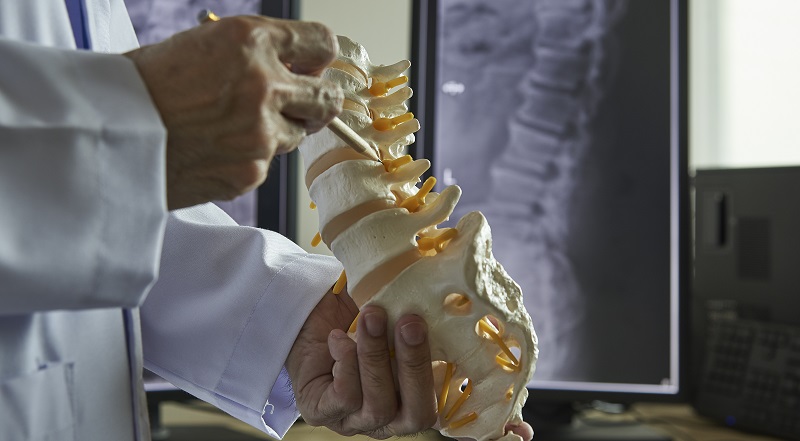At What Age Does Our Spine Start To Degenerate?
Category: Spine | Author: Stefano Sinicropi

Our spines are not infallible, and eventually they all start to show some signs of wear and tear. But when does spinal degeneration typically start, and is there anything we can do to prevent this degeneration? We take a closer look at how wear and tear can lead to spinal degeneration, and some things you can do to help slow down this process in today’s blog.
When Does Spinal Degeneration Begin?
We all stress our bodies in different ways, and eventually this strain causes our strong bones to gradually wear down. The good news is that this is an incredibly slow process that occurs over the course of your lifetime. That said, by the age of 35, about 30 percent of people will show some evidence of disc degeneration at one or more levels of their spine. That’s not to say that 30 percent of people will be in constant pain because of their spinal degeneration, because the early stages rarely present with symptoms, but the groundwork is there for back problems later on in life.
Moreover, by the age of 60, roughly 90 percent of people would show evidence of disc degeneration at one level of their spine if they underwent an imaging exam. Again, a lot of these people will be dealing with natural degeneration, which is what occurs when wear and tear leads to degeneration without the presence of pain. When pain and other symptoms are present, this is known as degenerative disc disease. So while 90 percent will have some natural degeneration by the age of 60, a much smaller percentage will be dealing with degenerative disc disease.
There is no way to prevent all degeneration from taking place, but the faster your spine degenerates, the more likely that this degeneration produces symptoms and transitions to degenerative disc disease. With that in mind, we want to take a closer look at some ways you can help to slow the degeneration process so that wear and tear leads to slow, natural degeneration instead of fast, symptomatic degeneration:
- Exercise – It may seem like exercise will stress your spine and lead to faster degeneration, but activity actually helps to strengthen the spine and make it better able to handle stress, which helps to prevent degeneration. Overly stressful activity or repetitive strain can cause problems, but regular exercise can actually help slow down natural degeneration.
- Weight Management – If we’re mindful about the food we put in our body, our spine can get the nutrients it needs to thrive, but a proper diet can also help prevent weight gain. Being overweight or obese will absolutely speed up spinal degeneration, so work towards a healthier weight, and you can slow the degeneration process.
- Proper Posture/Lifting – Having ideal posture when you’re sitting and moving ensures that stress is dispersed evenly across your spine. If you’re slouched, crouched or hunched when you’re moving or sitting, your lumbar or cervical spine will be handling more stress, which can speed up disc degeneration in these areas.
- Avoid Smoking – Smoking can make it harder for your spinal discs to get the healthy blood they need to function properly, so give up the habit if you’re a smoker to help prolong the life of your spine.
- Vitamin Supplements – If you aren’t getting enough essential nutrients like Vitamin D or calcium through your diet, consider taking a supplement. Vitamin D and calcium are imperative for bone health, so you need to regularly get these nutrients through your diet or through a supplement.
To learn more about preventing degenerative disc disease, or to talk to a doctor about your back pain, reach out to Dr. Sinicropi’s office today at (651) 430-3800.